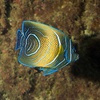
Most southern sighting of a blue angelfish
Check out this beautiful sighting of Pomacanthus semicirculatus (blue angelfish) spotted south of Perth, WA, by diver Alexandra Hoschke. The fish was found much further south than its usual home range.



Check out this beautiful sighting of Pomacanthus semicirculatus (blue angelfish) spotted south of Perth, WA, by diver Alexandra Hoschke. The fish was found much further south than its usual home range.
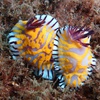
Sea slug lover, octopus wrestler and shark-shield convert: Naomi Arrowsmith is one interesting diver! And she's recorded some amazing photos on Redmap.org.au
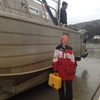
Year 10 student Georgia Poyner from Narooma, NSW, donned a lab coat and wet weather gear for an action-packed week of field and lab experience at the Institute for Marine and Antarctic Studies (IMAS) in Hobart recently. She measured rock lobsters, cut out fish ears and discovered what whale poop looks like.

Say what? Let me translate: how well do scientists communicate their research to the public? Now you can let us know and vote for videos entered in the Australian Society for Fish Biology's Student Science Communication Awards, including three PhD students from IMAS!
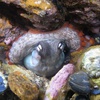
A surprising 60-year boom in global octopus, squid and cuttlefish numbers points to long-term changes taking place in the world's oceans, scientists say. Read the full story at ABC News.
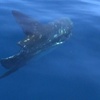
Contribute to the Mola/Ocean Sunfish project at Murdoch University, by donating side-on photos of Mola mola for research purposes.
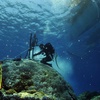
Research shows between 1984 and 2003 the growth of two types of marine fish and a coral slowed during El Niño years when waters were cooler, whereas in La Niña years, with warmer sea temperatures and generally more rainfall, growth rates increased. This would seem to spell good news as oceans are predicted to continue warming. Read more about this UWA Oceans Institute study.
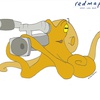
Next time you need an excuse to go fishing again, feel free to the Redmap excuse: "It's not fishing, it's research!"
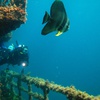
Hugh Richardson is an avid diver, travelling up and down the coast in search of WA's best dive spots. He's also a Redmap member and has logged some unusual sightings online.
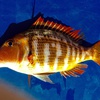
There was a summer spike in strange marine sightings in the South West/Capes region [of WA], as fish typically found in the State’s north made their way down via the warming Leeuwin Current. Spanish mackerel, marlin and redthroat emporer were just a handful of fish species recently spotted along the South West coast, all of which generally favour the warmer northern waters, writes the Busselton Dunsborough Times.